5 awesome Atelier games to try if you loved Ryza
It’s fair to say that the two Atelier Ryza games have brought a lot of new people into Gust’s long-running alchemy RPG series for the first time. And not just because of the somewhat curvaceous nature of the female cast members, either; they’re simply great games.
But Atelier as a series has been around since 1997, with the first installment to come west being Atelier Iris: Eternal Mana on the PlayStation 2 in 2005. There have been a lot of Atelier games — and a lot of Atelier subseries! — since that time, and it can be tricky to know where to dive in if you want to know more.
Thankfully, you have a veritable scholar of all things Atelier on hand to give you some recommendations, so please allow me to take you on a grand tour, exploring five of my favourite Atelier games that you should consider checking out if you had a good time with Ryza and chums.
Atelier Iris 3: Grand Phantasm
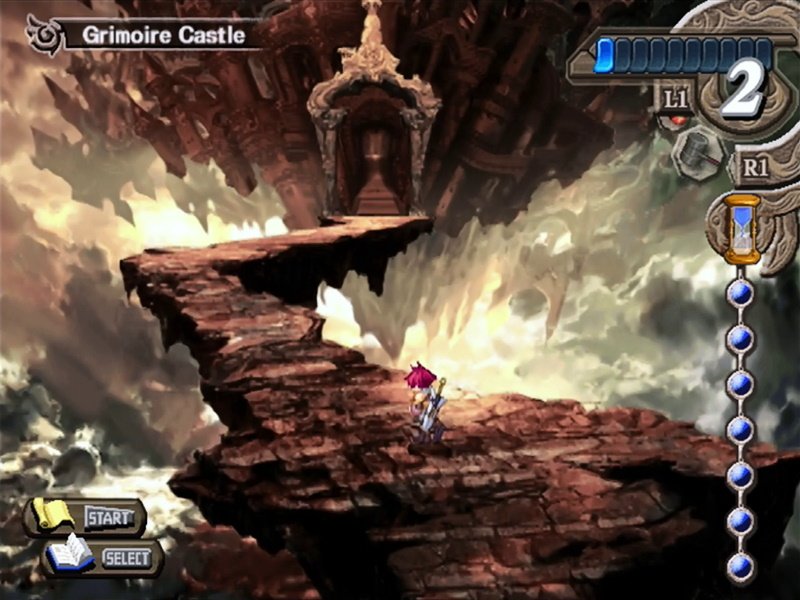
Unlike the Atelier subseries both before and after it, the three Atelier Iris games don’t have much connection to one another. Technically Atelier Iris 2: The Azoth of Destiny unfolds in the distant past of Atelier Iris: Eternal Mana, but Atelier Iris 3: Grand Phantasm stands entirely by itself, meaning even newcomers can jump right into it without having to worry about missing any context.
Which is great, because Atelier Iris 3: Grand Phantasm is dope. Featuring a quest-based structure where protagonist Edge and his perpetual companions Iris and Nell sort out a wide variety of problems in and around the gorgeous city of Zey Meruze, Atelier Iris 3: Grand Phantasm is a well-structured game that constantly provides the player with a sense of achieving something meaningful.
It’s got an extraordinarily well-crafted world that feels like it continues to go about its business even when you’re not around, an exciting and well-paced narrative, plus plenty of optional background detail to explore if you really want to immerse yourself in the experience.
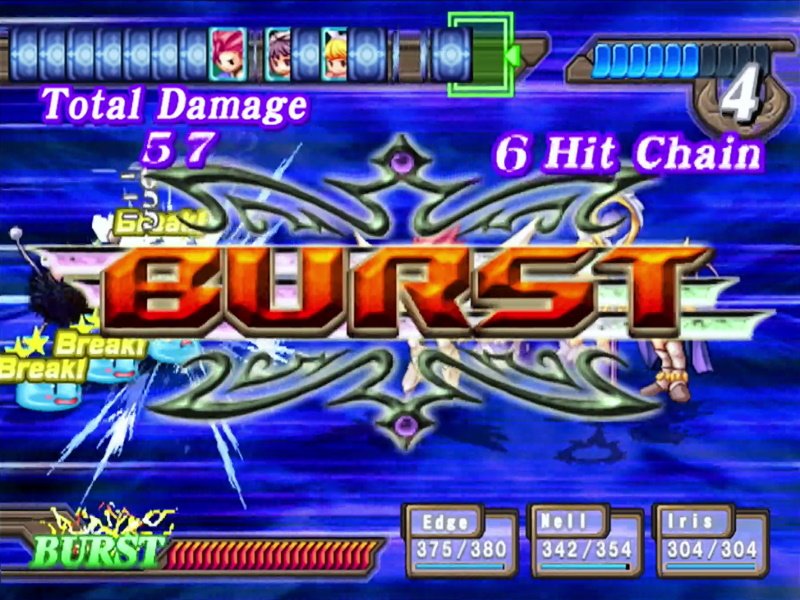
The alchemy system is well-integrated with the narrative, with alchemist character Iris coming up with vague “ideas” as she levels up her skills; subsequently, you’ll need to track down something in the game world that inspires her to develop that simple idea into a full-on alchemy recipe. And from there, some straightforward yet detailed customisation options allow you to optimise your characters to your heart’s content.
It also has an absolutely fantastic battle system that combines classic turn-based action with aesthetic influences from some of the noisiest, most overexaggerated fighting games out there, making it a constant pleasure to play — whether you’re fighting off fearsome foes or just spending some quiet time in Iris’ workshop crafting a few new items.
The only tricky thing with this one is that it’s a PS2 game, so you’ll need to track down a copy of it and have something to play it on. It’s well worth the effort, though, as this is one of the finest RPGs the PS2 has to offer.
Mana Khemia 2: Fall of Alchemy
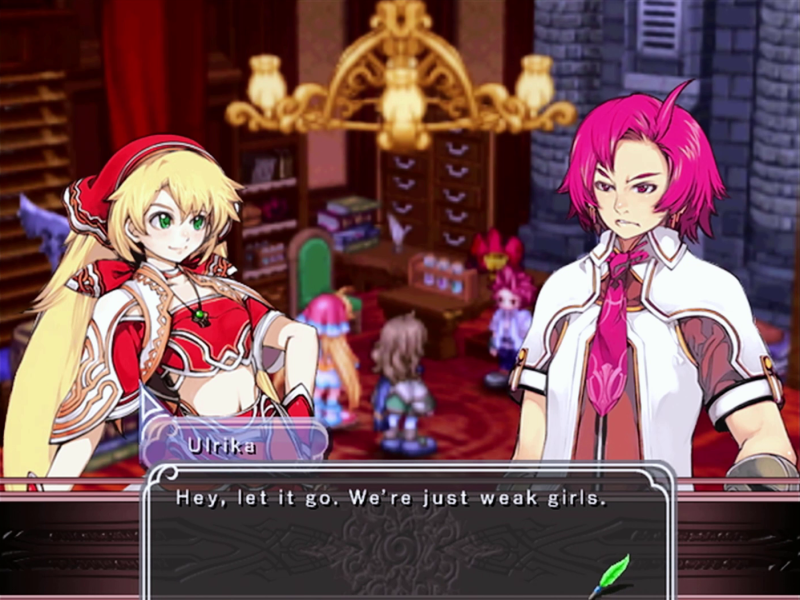
Despite the lack of “Atelier” in the title, this is a mainline installment in the series, along with its direct predecessor. It’s another PS2 game — and one that never crossed the pond from North America to Europe this time around — but, like Atelier Iris 3: Grand Phantasm, it’s worth the effort to find a means of playing it, because this is an absolutely fantastic RPG.
In Mana Khemia 2: Fall of Alchemy, you take on the role of either Ulrika or Raze as they attempt to live out a school year in a somewhat struggling alchemy academy. You’ll need to complete assignments for class, take on jobs for various clients and develop your relationship with the core cast members. While both Ulrika and Raze’s routes through the game follow the same major narrative beats — they’re both living through the same school year after all — the moment-to-moment narrative is very different due to the wildly divergent core casts for each route.
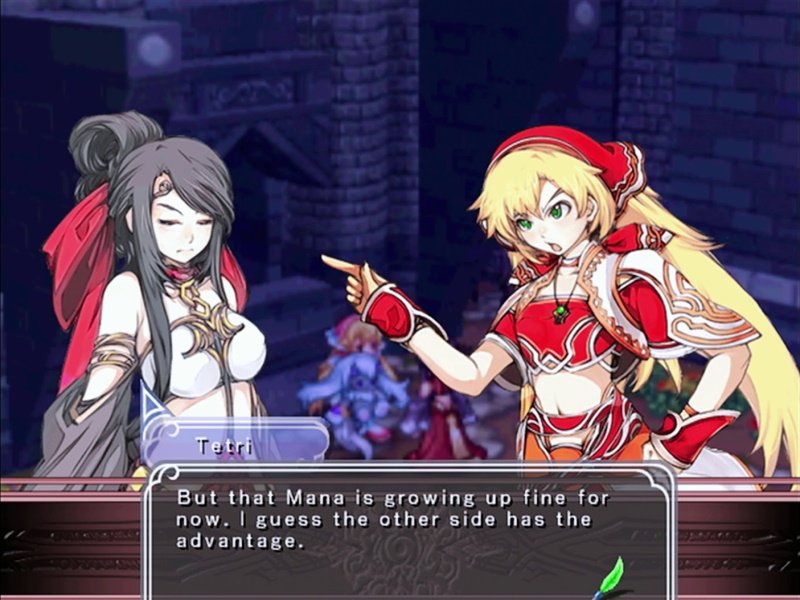
This means playing through the game twice is something well worth doing, since it’s a completely different experience with the other protagonist — though thankfully you can carry a bunch of stuff over from your first playthrough to save some time. And once you’ve beaten it with both, there’s a “true” ending to wrap the whole thing up and put a bow on it. It’s one of the most substantial games in the series’ history, taking about 50 hours or so to blast through in its entirety — plus a bit more if you fancy some additional challenges.
Mana Khemia 2: Fall of Alchemy features a combat system that builds on the great work Atelier Iris 3: Grand Phantasm did, but combines it with a fascinating progression system that ties directly in with the alchemy aspect of the game. Craft particular items and you’ll unlock passive and active skills for the various characters; you’ll then need to use points earned through combat to activate these skills.
Atelier Meruru: The Apprentice of Arland
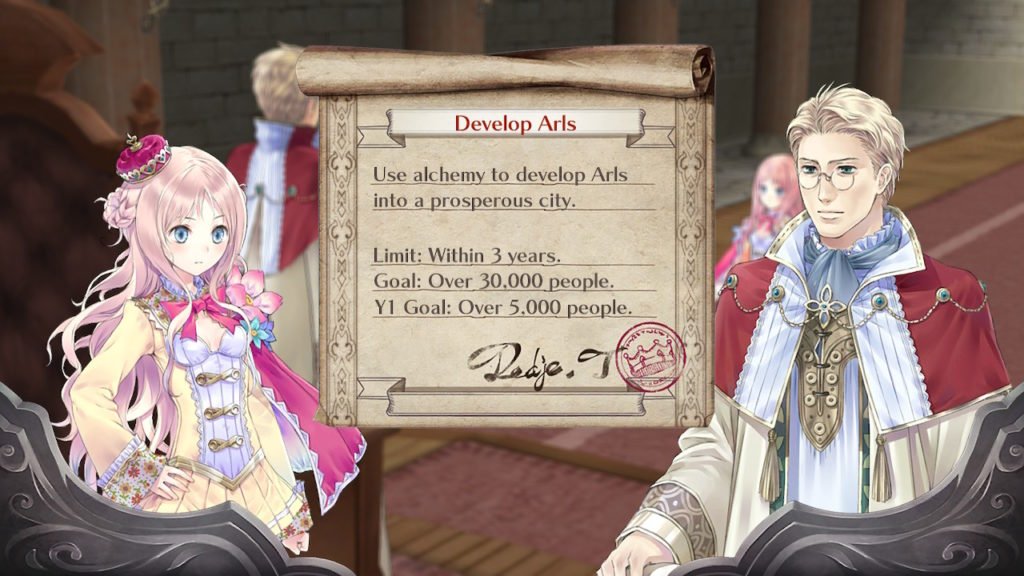
The three original “Arland” games mark a point where the Atelier series got somewhat back to its roots after the grander scale and somewhat more ambitious efforts on the PS2. They were about alchemists hanging out in their workshop, crafting items and, in most cases, trying to achieve something either very personal or very local to themselves, rather than defeating some sort of great JRPG evil. And they had absolutely beautiful pastel-coloured artwork penned by artist Mel Kishida.
Atelier Meruru casts you in the role of a tomboyish princess who is fascinated by alchemy. Her father is resistant to her studying the art, believing that she should stay at home and be a proper quiet little princess who just looks pretty and doesn’t cause any trouble, but she quickly proves herself very capable — and more than willing to use her skills for the good of the kingdom as a whole.
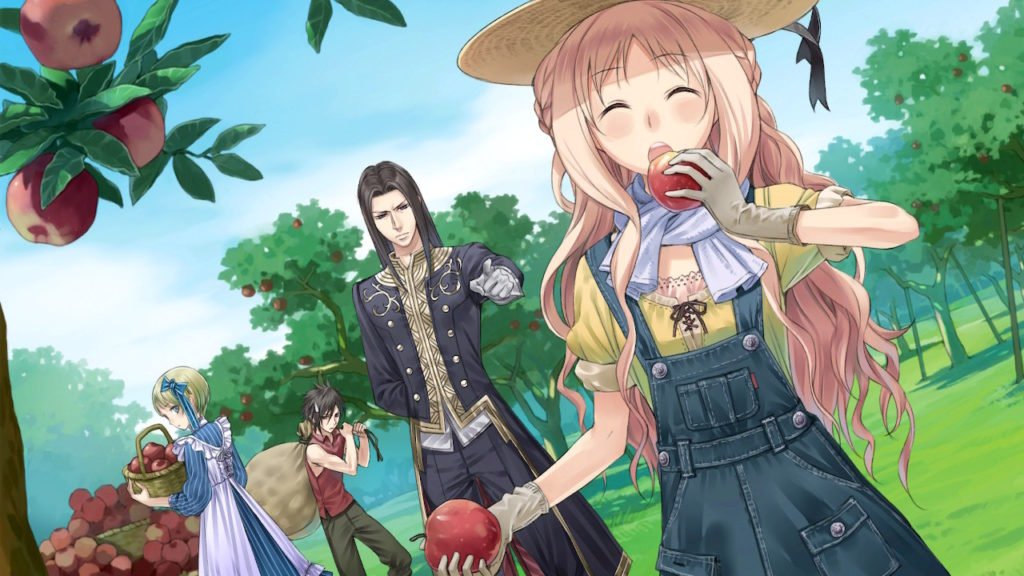
What follows is an adventure where protagonist Meruru gradually learns more and more powerful alchemy, which helps her build up the kingdom and keep her safe out in the field. It’s a fascinating journey of personal growth for her, and it’s heartwarming to see her development over the course of the narrative. Plus it’s extremely satisfying to see the kingdom’s population figures rising in accordance with your actions — and new buildings constructed within its borders to celebrate your various accomplishments.
Atelier Meruru is a charming game with solid mechanics — it’s arguably the best implementation of the Arland trilogy’s distinctive alchemy systems — and is easily playable today, either in its original PS3 form, its Plus form for PlayStation Vita, or its DX form for Nintendo Switch, PlayStation 4 or PC — the DX version incorporates all the past DLC and patches from the earlier versions. Sadly, only the original PS3 version has a physical release, but if you poke Koei Tecmo on Twitter often enough they might listen to the demand for more modern versions one day!
Atelier Lulua: The Scion of Arland
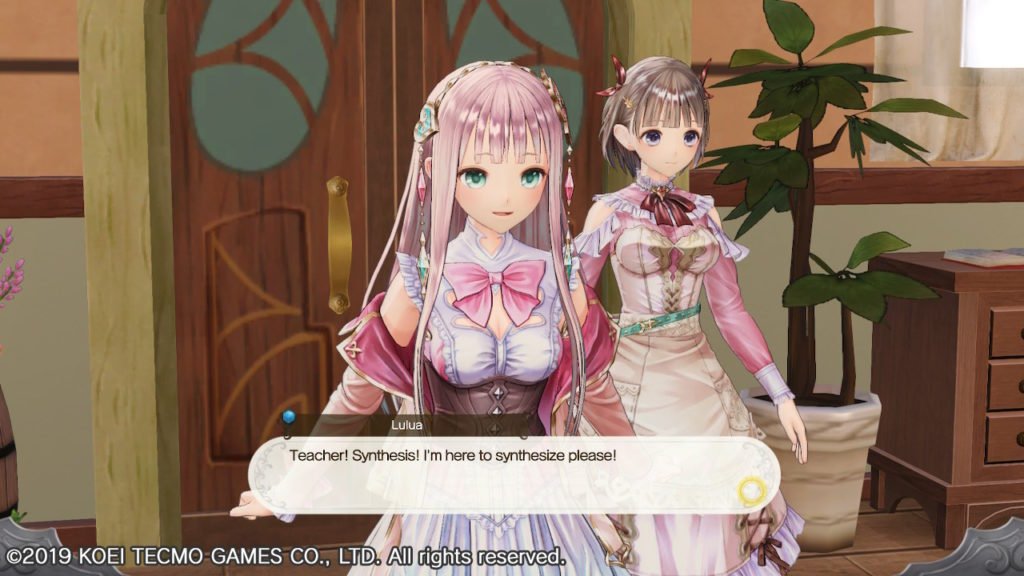
Atelier Lulua came out in the same year as the first Atelier Ryza, and consequently was rather overshadowed. To a certain extent this was deliberate, as Ryza was intended to be the Atelier game that brought new fans in, while Atelier Lulua would be the fanservice title for existing fans.
As it happens, Atelier Lulua is a great game in its own right, even for newcomers — and something of an anomaly for the series as a whole. Normally, once an Atelier subseries is over and done with, the series as a whole moves on; in Lulua’s case, it marked a return to the Arland series after both the Dusk and Mysterious trilogies were done and dusted. This is because the Arland series in particular proved very popular, and marked the dawn of the “modern age of Atelier” — it made sense for them to provide longstanding fans with a new game in the series.
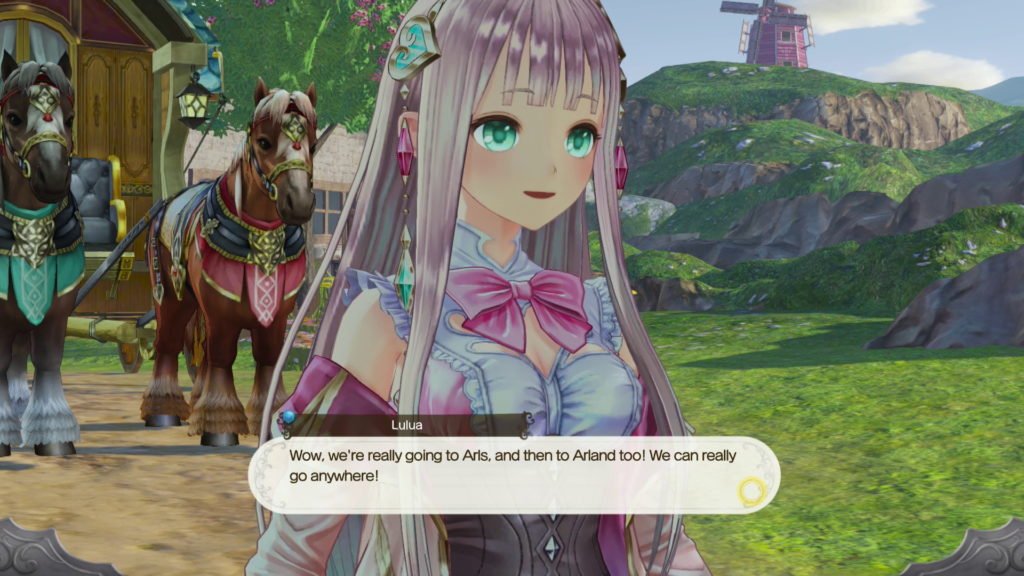
But the game remains accessible even if it’s your first Atelier. Lulua is a brand new character we haven’t seen before, and the narrative unfolds a good twenty years after Atelier Rorona: The Alchemist of Arland kicked off the Arland series. Consequently, newcomers can learn about the world and its important characters alongside Lulua, while longstanding fans can enjoy the pleasant opportunity to have an unexpected reunion with some favourite friends.
It’s very much a game that starts a new age for Arland, though; there’s a lot of symbolic “handing over” of important roles from one generation to the next. While it remains to be seen if we’ll see any more Arland games after Lulua, it’s certainly a distinct possibility — and one I’d absolutely welcome.
Atelier Lulua is available for Nintendo Switch, PlayStation 4 and PC.
Atelier Ayesha: The Alchemist of Dusk
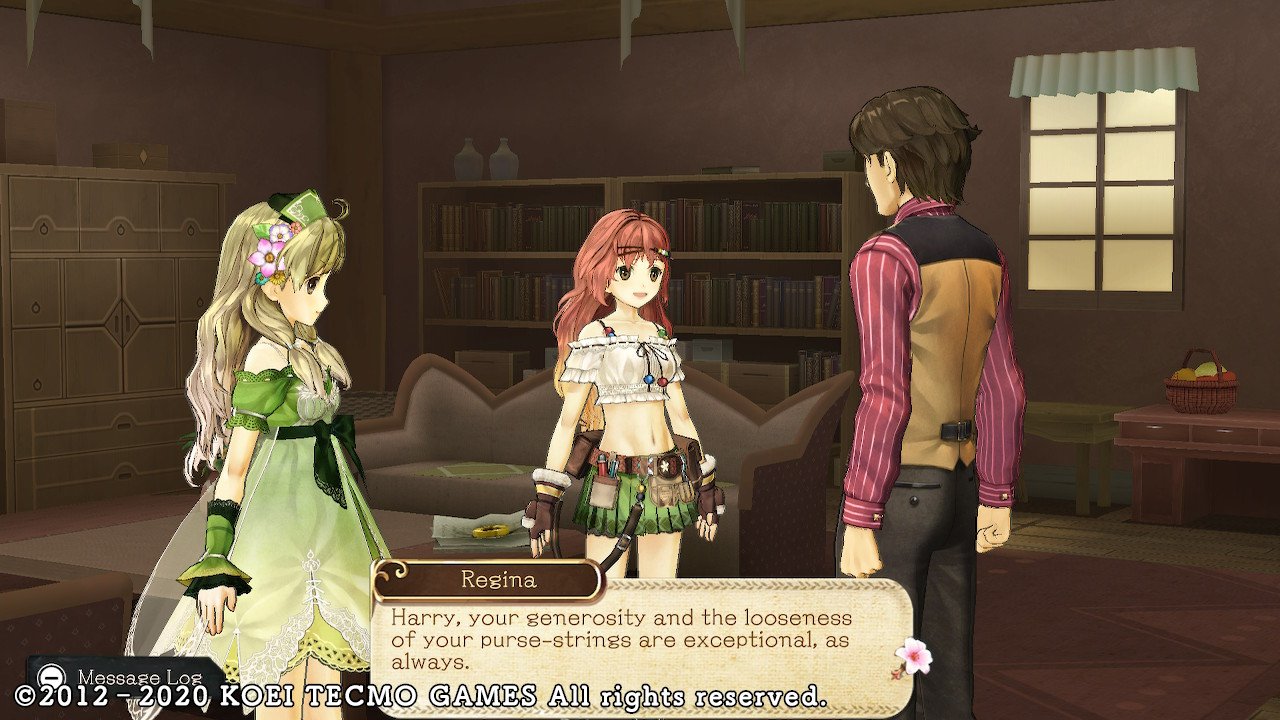
For many longstanding Atelier fans, the Dusk trilogy as a whole is a real high point of the series, combining emotionally resonant narratives with solid mechanics, memorable characters and an absolutely gorgeous art style, courtesy of illustrator Hidari. Atelier Ayesha: The Alchemist of Dusk gets things underway with a personal tale about a young woman searching for her sister, who was spirited away several years ago, and learning how alchemy might fit in with all that.
The Dusk series has a very distinctive atmosphere about it; rather than being the more commonly seen post-apocalyptic setting, the world of Dusk is one where the apocalypse is either in the process of happening or at the very least about to happen. The world is falling apart and everyone is struggling — but that also means that a lot of people are keen to pull together and do their very best to survive.
Amid these struggles, Atelier Ayesha raises some interesting questions about whether or not it is selfish to indulge in such a deeply personal quest, and how you find a balance between living for others and living for yourself. There are some fascinating, complex characters throughout — and an astonishing final boss theme that will bring even the most strong-willed among us to tears when heard in context.
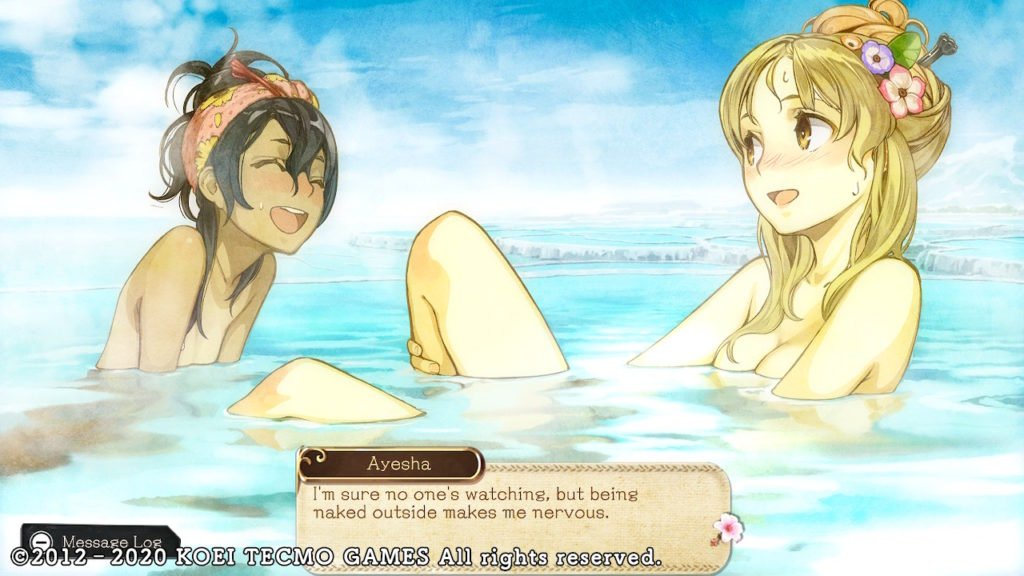
Atelier Ayesha is quite a challenging game if you’re used to games with a more defined structure — it basically opens by saying “you’ve got three years, get on with it”, leaving you to set your own priorities — but it’s a real highlight of the series for many fans with good reason.
Atelier Ayesha can be played in its original PS3 form, in its Plus version for PlayStation Vita, or in its DX incarnation for Nintendo Switch, PlayStation 4 or PC. The entire Dusk trilogy got a packaged release for Nintendo Switch via Play-Asia — at nearly £70 it’s pricey (although actually cheaper than buying the games individually on digital storefronts), but you’re getting three full RPGs on one cart for your money — so if you want these games on your shelf, it’s worth digging deep for.
Join The Discussion
Rice Digital Discord
Rice Digital Twitter
Rice Digital Facebook
Or write us a letter for the Rice Digital Friday Letters Page by clicking here!
Disclosure: Some links in this article may be affiliate links, which means we may earn a small commission if you make a purchase after clicking on them. This is at no additional cost to you and helps support Rice Digital!
- Letter from the Editor: passing the torch - June 30, 2023
- Super Woden GP 2 is looking promising - June 30, 2023
- Inti Creates is making a 32 bit-style Love Live action platformer - June 26, 2023






